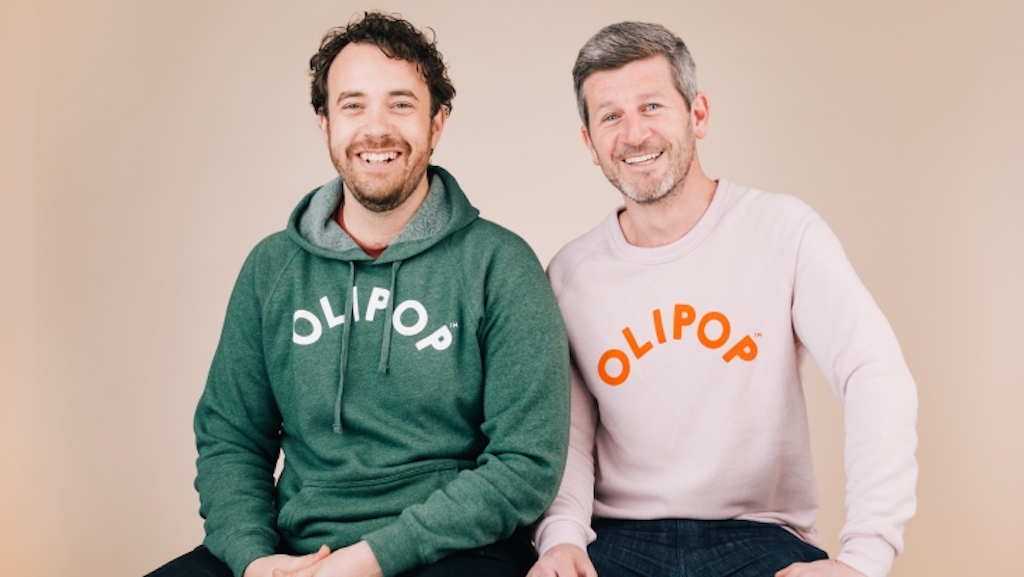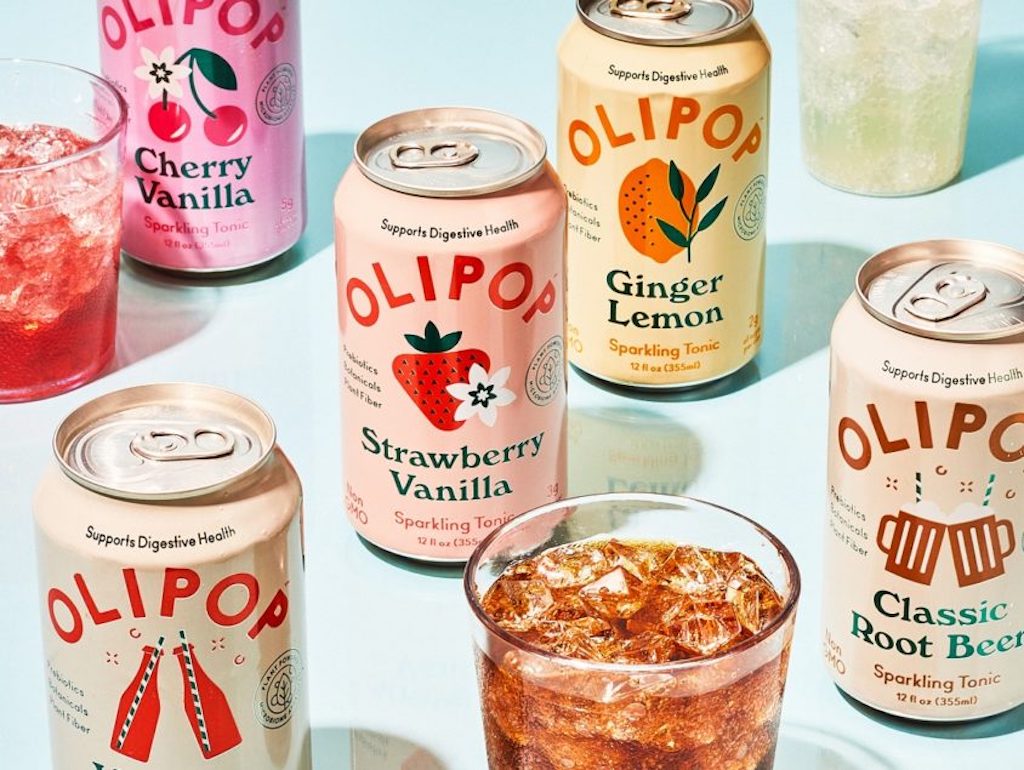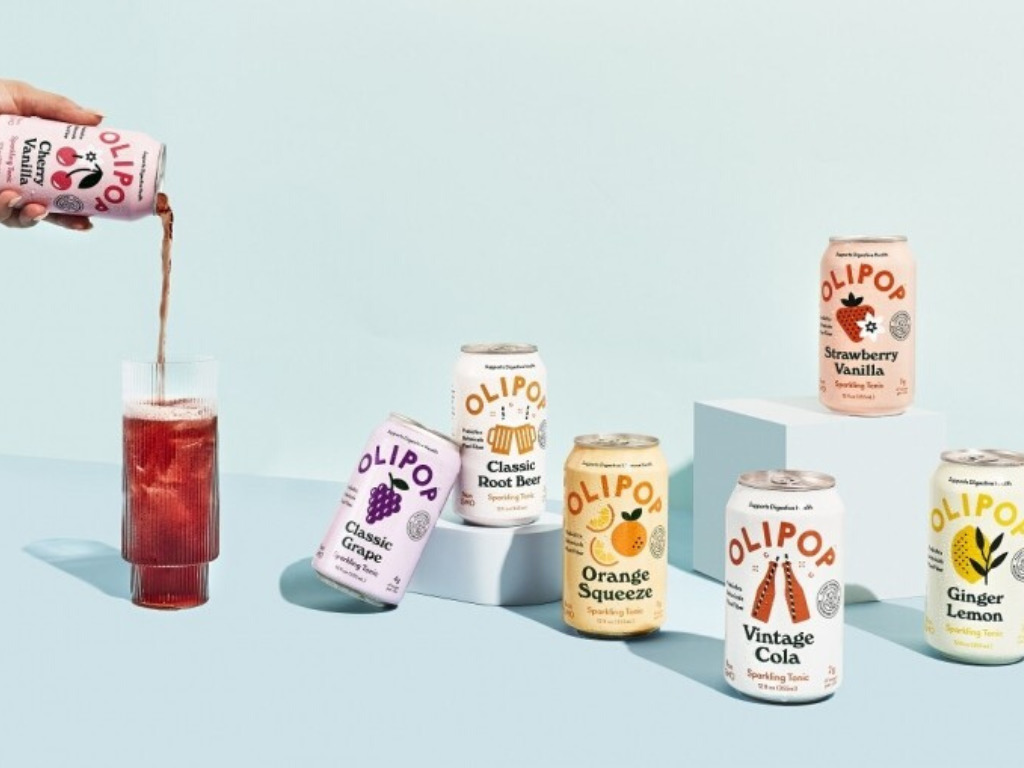4 Mins Read
The Jonas Brothers drink it. So do Camila Cabello, Mindy Kaling, and even Gwyneth Paltrow. The functional soda brand Olipop, which positions itself as a healthy alternative to the conventional sugar-laden brands, just raised $30 million in a Series B funding round in its quest to disrupt the soda category.
Sodas without a ton of sugar aren’t new. Diet Coke has been a top-selling item for Coca-Cola for more than four decades. Recent soda taxes in the UK and in some parts of the U.S. saw Diet Coke and other diet soda sales skyrocket, even despite concerns over the artificial sweetener used in the formula.
Three-year-old Olipop thinks it can help rewrite the soda story. The functional soda brand, co-founded by industry experts Ben Goodwin and David Lester, has seen its sales go from 45 stores since launching in 2018 to more than 10,000 stores nationwide including Kroger, Target, Whole Foods, and Safeway.
Lester compares the brand’s success to its predecessors, calling it “the first major disruptive innovation in the soda category in over 40 years since Coca-Cola launched Diet Coke in 1981,” he told TechCrunch.
“Functional soda is fundamentally about two things: meeting the consumer where they are with a delicious drink that doesn’t force them to compromise on a category they enjoy, and two cutting-edge health benefits backed by rigorous science,” he added.
What is functional soda?
The functional beverage market is huge; sales of its darling product, the tangy fermented kombucha, were more than $1.3 billion globally in 2019, and that number is expected to surpass $8 billion by 2026.
But what defines functional isn’t clear. There are no regulations around the claim, and no restrictions on the sugar content, something consumers may assume is less than soda. But a number of alternative or functional beverages can contain as much sugar as the soft drinks they’re meant to replace, according to Healtline.

Drinks marketed as functional typically include botanicals and vitamins, products like Kin Euphorics’ buzzy beverages that promise to deliver energy or calming, depending on the brew.
For Olipop, functional means gut-healthy, a feat it says it achieves by way of plant-based fiber, prebiotics, and its unique blend of botanicals.
It’s more than just a string of buzzwords, though. Studies on the artificial sugars common in diet sodas have been shown to disrupt gut health, increasing the risk of potential side effects including serious health issues.
Olipop says its brews are “backed by rigorous science” including a scientific advisory board specific to the company’s gut health claims. The company has already completed two in-vitro studies with Baylor and Purdue universities, and is working on human clinical trials as well.
The future of soft drinks
Despite warnings from leading health organizations and government intervention in the way of soda taxes, the industry is still enormous, valued at nearly $40 billion globally.
Conventional soda can contain close to 40 grams of sugar per serving.
Studies have linked regular conventional diet soda consumption with increased risk of heart attack, stroke, and death, especially for women, as well as dementia, type-2 diabetes, and obesity.
Olipop sees a bright future for soda drinkers. Its sugar content is two to five grams, and its unique selling point of improved gut health is rounded out with nine grams of fiber.

Investors are all-in. It raised nearly $14 million in 2018, and added another $30 million in its recent Series B, which included its fans the Jonas Brothers, Priyanka Chopra, Camila Cabello, Mindy Kaling, and Gwyneth Paltrow. The round was led by Monogram Capital Partners and existing investor, Rocana Venture Partners as well as former Pepsi CEO Indra Nooyi, among others.
The company says it anticipates achieving a $100 million run-rate by the end of 2022 after surpassing growth targets for 2021, seeing top line revenue grow by three times.
Already, there are competitors copying Olipop’s flavor profiles, which include Ginger Lemon, Cola, Orange Squeeze, and Cherry Vanilla.
But the company says the competition can’t match on taste or on the gut health benefits.
“Olipop is transforming how consumers experience soda,” Jared Stein, a partner at Monogram Capital who is joining Olipop’s board, said in a statement. “Today’s consumers are increasingly focused on lower-sugar alternatives that don’t sacrifice taste and include functional benefits such as enhanced gut and immune health.”
All images courtesy of Olipop.



